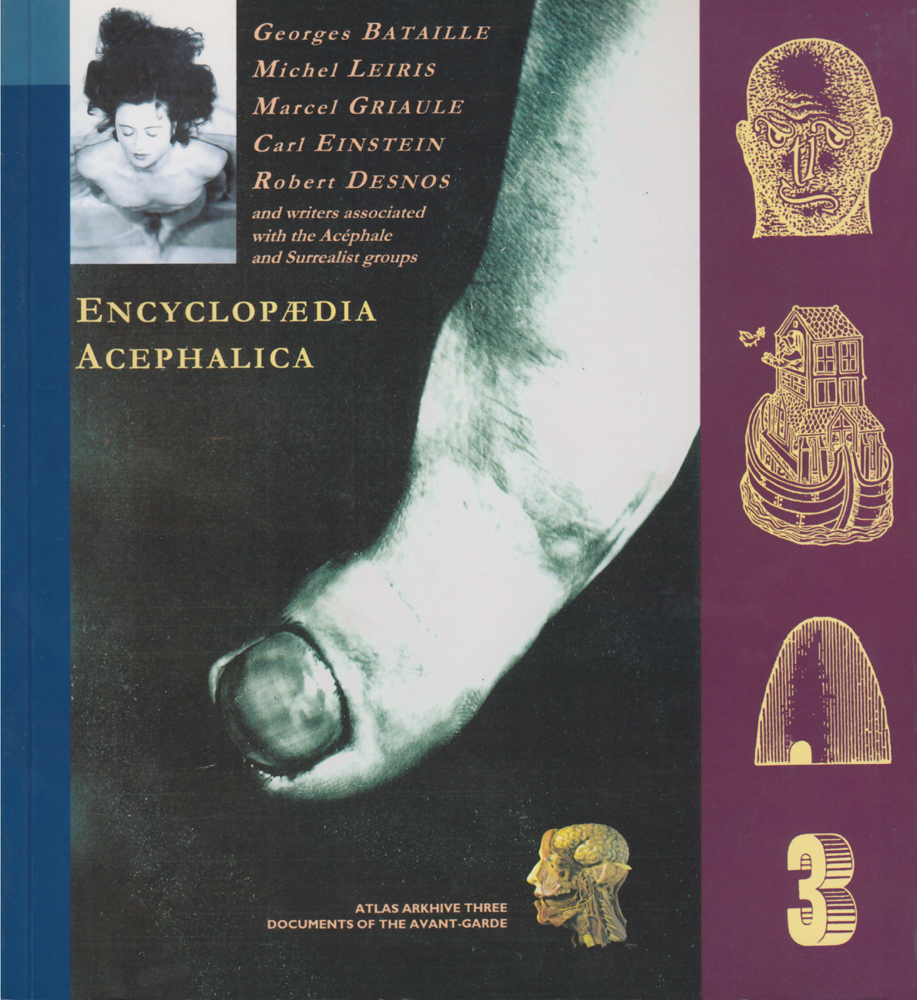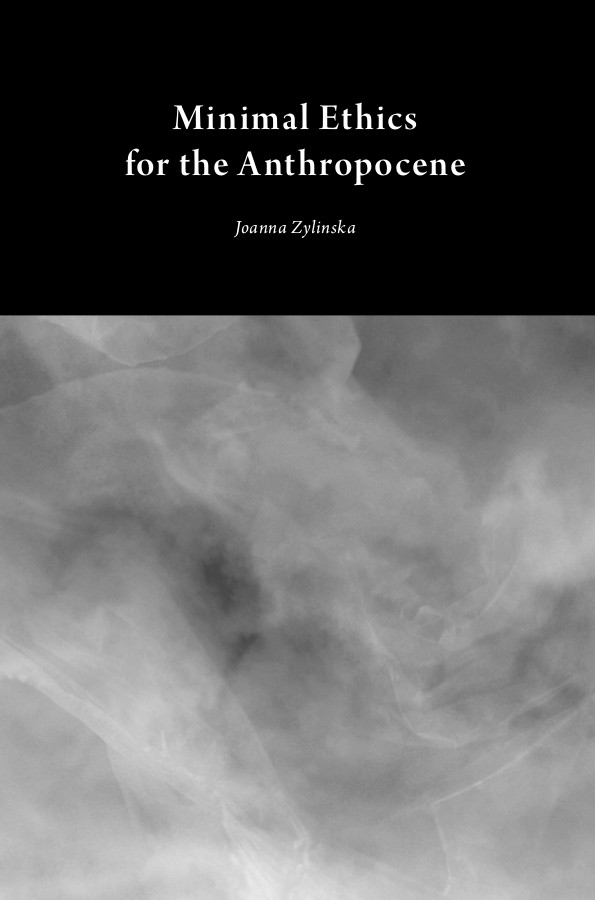Bataille, Leiris, Griaule, Einstein, Desnos, et al.: Encyclopædia Acephalica (1995)
Filed under book | Tags: · avant-garde, death, eroticism, materialism, surrealism

“The present volume contains two works: the Critical Dictionary first appeared in the magazine edited by Bataille, Documents, the second series of texts, the Da Costa Encyclopédique, was published anonymously after the liberation of Paris in 1947 by members of the Acéphale group and writers associated with the Surrealists. Both cover the essential concepts of Bataille and his associates: sacred sociology; scatology, death and the erotic; base materialism; the aesthetics of the formless; sacrifice, the festival and the politics of the tumult etc: a new description of the limits of being human. Humour, albeit, sardonic, is not absent from these remarkable redefinitions of the most heterogeneous objects or ideas: Camel, Church, Dust, Museum, Spittle, Skyscraper, Threshold, Work – to name but a few.
The Documents group was celebrated for joining together artists, authors, sociologists and ethnologists (among the most important of their time) in a literary and philosophical project. The Acéphale group was more mysterious, even its membership is only vaguely known, and its activities remain secret. The origins of the Da Costa only became known in 1993, the present volume reveals for the first time its principal compilers: Robert Lebel, Isabelle Waldberg and Marcel Duchamp, even so, the identity of the authors of a large part of it remain unknown.”
Assembled and introduced by Alastair Brotchie
Biographies by Dominique Lecoq
Translated by Iain White, et al.
Publisher Atlas Press, London, 1995
Atlas Arkhive: Documents of the Avant-Garde series, 3
ISBN 0947745872
176 pages
via esco_bar
PDF (removed on 2019-7-24 upon request from publisher)
See also scans of all issues of the magazines Documents and Acéphale on Monoskop wiki.
Comment (0)Joanna Zylinska: Minimal Ethics for the Anthropocene (2014)
Filed under book | Tags: · anthropocene, death, ethics, life, photography, poetics, politics

“This book was inspired by Annie Sprinkle and Beth Stephens’ wonderfully provocative wedding to Lake Kallavesi at the ANTI Contemporary Art Festival in Kuopio, Finland, in September 2012.” (from Acknowledgments)
“Minimal Ethics for the Anthropocene considers our human responsibility for the world, at a time when life finds itself under a unique threat. Its goal is to rethink “life” and what we can do with it, in whatever time we have left—as individuals and as a species. This speculative, poetic book also includes a photographic project by the author.” (from the back cover)
Publisher Open Humanities Press, September 2014
Critical Climate Change series
Creative Commons BY-SA 4.0 License
ISBN 1607853299, 9781607853299
152 pages
Reviews: Jason Groves (Feedback, 2014), Marietta Radomska (philoSOPHIA, 2015), Andrew Pilsch (Enculturation, 2017).
HTML
PDF, PDF (updated on 2016-7-19)
Hillel Schwartz: The Culture of the Copy: Striking Likenesses, Unreasonable Facsimiles, 2nd ed. (1996/2013)
Filed under book | Tags: · animal, appropriation, art, children, computing, copy, death, fashion, film, gender, genetics, history, imitation, japan, language, machine, memory, music, photography, piracy, property, reenactment, reproduction, sculpture, simulation, slavery, statistics, surgery, technology, theatre, time, war

The Culture of the Copy is an unprecedented attempt to make sense of the Western fascination with replicas, duplicates, and twins. In a work that is breathtaking in its synthetic and critical achievements, Hillel Schwartz charts the repercussions of our entanglement with copies of all kinds, whose presence alternately sustains and overwhelms us. Through intriguing, and at times humorous, historical analysis and case studies in contemporary culture, Schwartz investigates a stunning array of simulacra—counterfeits, decoys, mannequins, and portraits; ditto marks, genetic cloning, war games, and camouflage; instant replays, digital imaging, parrots, and photocopies; wax museums, apes, and art forgeries, not to mention the very notion of the Real McCoy. Working through a range of theories on biological, mechanical, and electronic reproduction, Schwartz questions the modern esteem for authenticity and uniqueness. The Culture of the Copy shows how the ethical dilemmas central to so many fields of endeavor have become inseparable from our pursuit of copies—of the natural world, of our own creations, indeed of our very selves.
This updated edition takes notice of recent shifts in thought with regard to such issues as biological cloning, conjoined twins, copyright, digital reproduction, and multiple personality disorder. At once abbreviated and refined, it will be of interest to anyone concerned with proglems of authenticity, identity, and originality.
First published in 1996
Publisher Zone Books, New York, 2013
ISBN 1935408453, 9781935408451
480 pages
Review (Terence Hawkes, London Review of Books, 1997)
Review (Francis Kane, The New York Times, 1997)
Review (Todd Gitlin, Los Angeles Times, 1997)
Download (removed on 2014-3-20 upon request of the publisher)
Comment (1)
